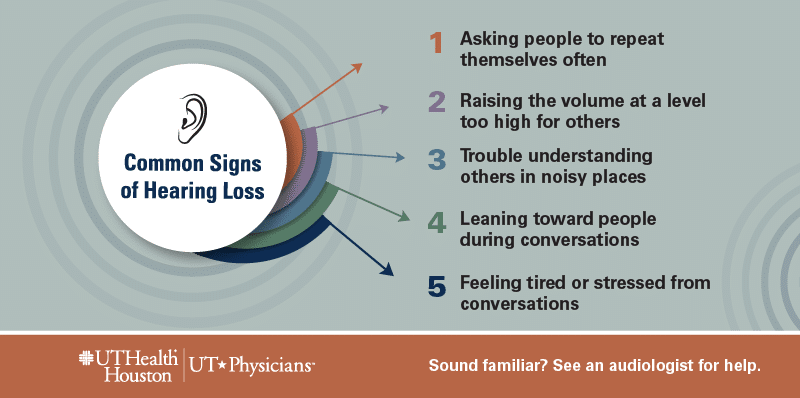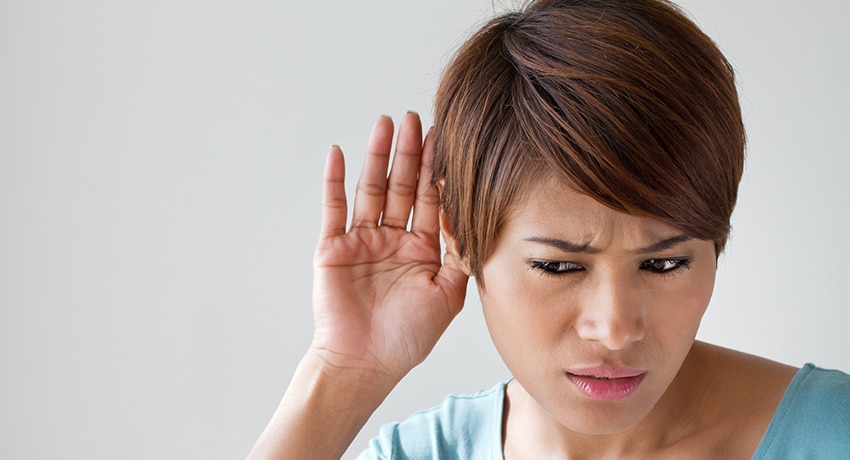Aside from the key benefit of verbal communication, our hearing alerts us of situations happening in our environment, gives us joy and entertainment through music, and can help preserve our memory and maintain other mental functions.
For World Hearing Day on Friday, March 3, Rajarshi Pratihar, AuD, MHA, MBA, audiologist with UT Physicians and director of audiology with McGovern Medical School at UTHealth Houston, explains the common reasons for hearing loss and offers advice to help your hearing last a lifetime.

Hear today, gone tomorrow
Hearing loss is more common in seniors due to aging changes, but it can also occur in younger adults due to increasing noise exposure.
“Aging and constant exposure to loud noise are the two most common causes of hearing loss in adults,” Pratihar said. “Other factors that can also cause hearing loss are ototoxic medications, trauma to the inner ear, certain diseases and health conditions, chronic ear infections, and genetic variations.”
Whatever the cause may be, no one is immune to hearing loss. Whether the extent is major or minor, the loss is not reversible in most cases.
“Damaged hair cells in the cochlea do not regenerate,” he said. “If these cells become damaged or die, it leads to irreversible hearing loss. Though there are devices and implants that can help, hearing loss is something to be prevented, not corrected.”
Hear comes trouble
Hearing loss can happen from frequent exposure to noises measuring at or above 85 decibels. Running lawnmowers, motorcycles, and power tools are such examples.
Additional harm — and possible pain — may come from the explosive, piercing, or deafening noises of 100 decibels or higher. These types of sonic booms include fireworks, auto racing, sports events, and concerts.
“If you’re at a loud event, and you can’t hear what the person next to you is speaking, it’s likely causing damage to your hearing,” Pratihar said. “Prolonged, loud sounds can damage the hair cells in the inner ear, causing some of them to die. Even one-time loud special events can contribute to hearing loss if you don’t protect your ears or step away every hour to rest your ears.”
From hear on
To preserve your hearing, carry and wear earplugs or noise-canceling earphones or headphones in loud environments.
“If you work in a loud place, like an airport or construction site, or enjoy loud hobbies, like hunting/shooting or woodworking, you really need to practice hearing safety,” Pratihar said. “Make a habit of wearing ear protection at loud events as well, and avoid being close to any loudspeakers.”
Also, be mindful of the volume on your smartphone and personal audio devices.
“Be careful not to listen to anything too loud, especially if you’re wearing earphones,” he said. “If you can’t hear someone talking to you, but you can hear the TV from another room, the volume is probably too high.”
Finally, take advantage of free hearing health applications that can help test your hearing and measure the sound level of your surroundings.
Hear for your health
Hearing not only improves your quality of life but your long-term brain health.
“Hearing loss can make listening effortful, and it is also linked to cognitive decline and dementia,” Pratihar said. “Sounds are a form of stimulation, and the brain needs to work to process the sound. If our sense of hearing goes away, our minds can weaken. In fact, hearing plays a huge part in mental health and healthy aging.”
No matter the age of a person, hearing loss can also lead to social isolation, loneliness, depression, and anxiousness, the audiologist added.
If you are at high risk or believe a loved one is suffering from hearing loss, schedule an appointment with an audiologist. If you are age 60 and older, see an audiologist every few years.




